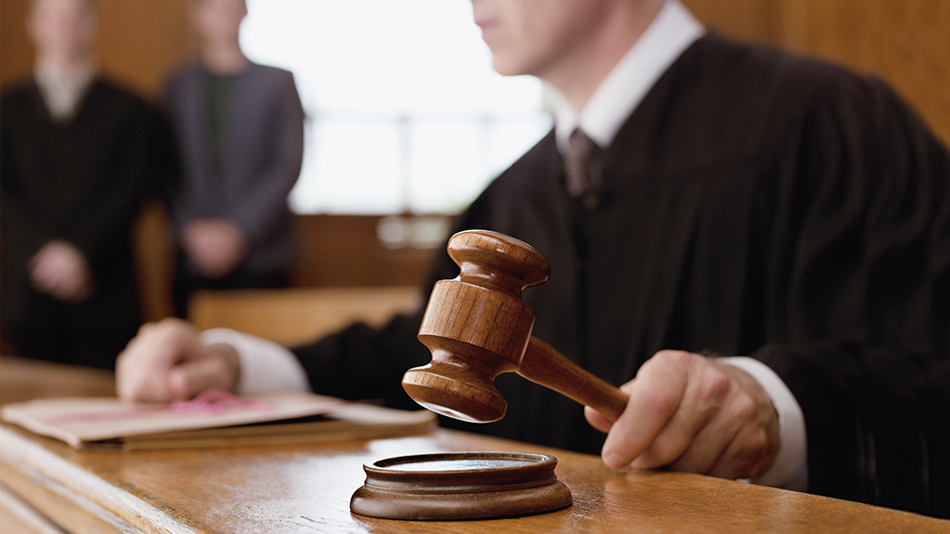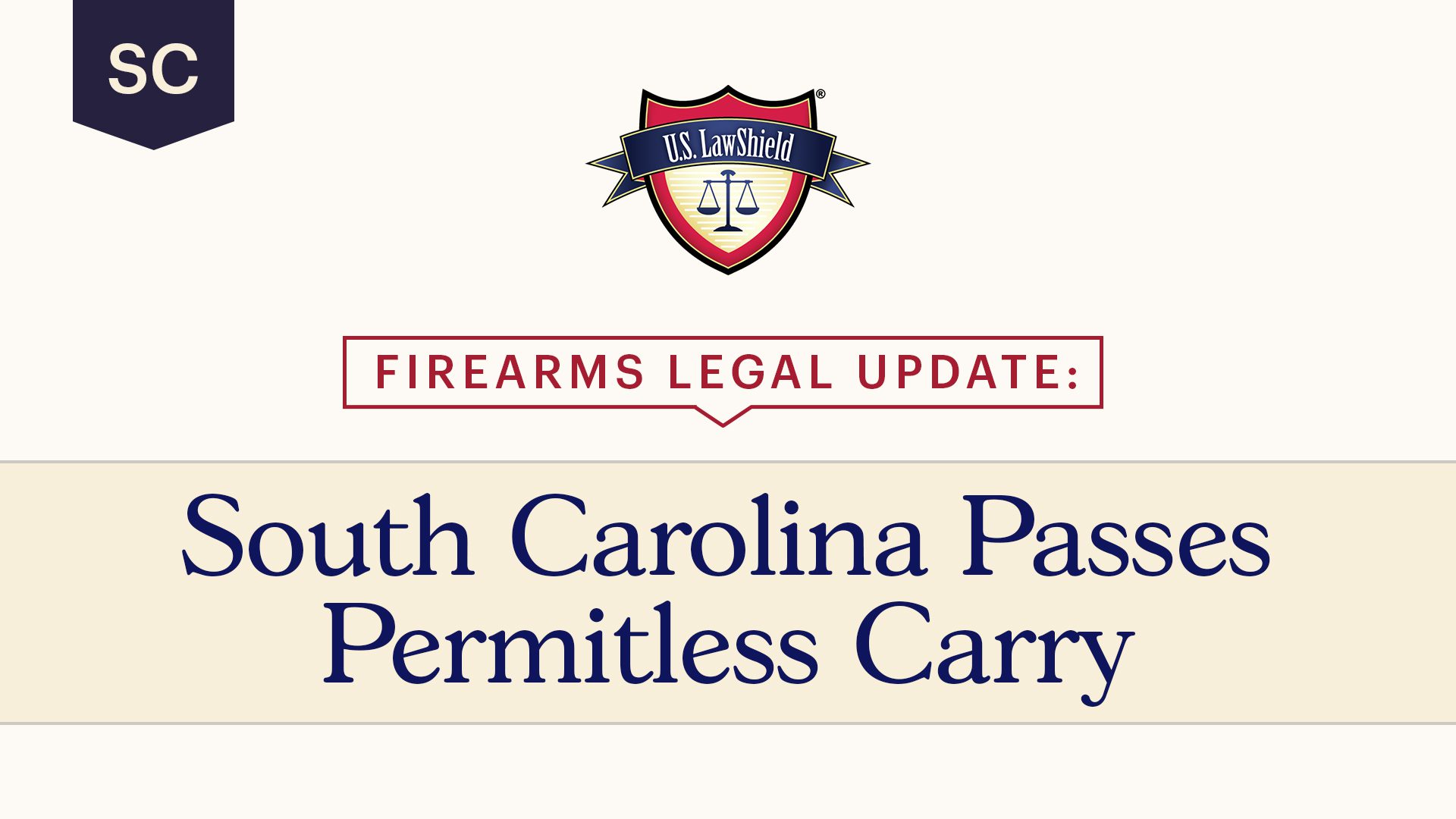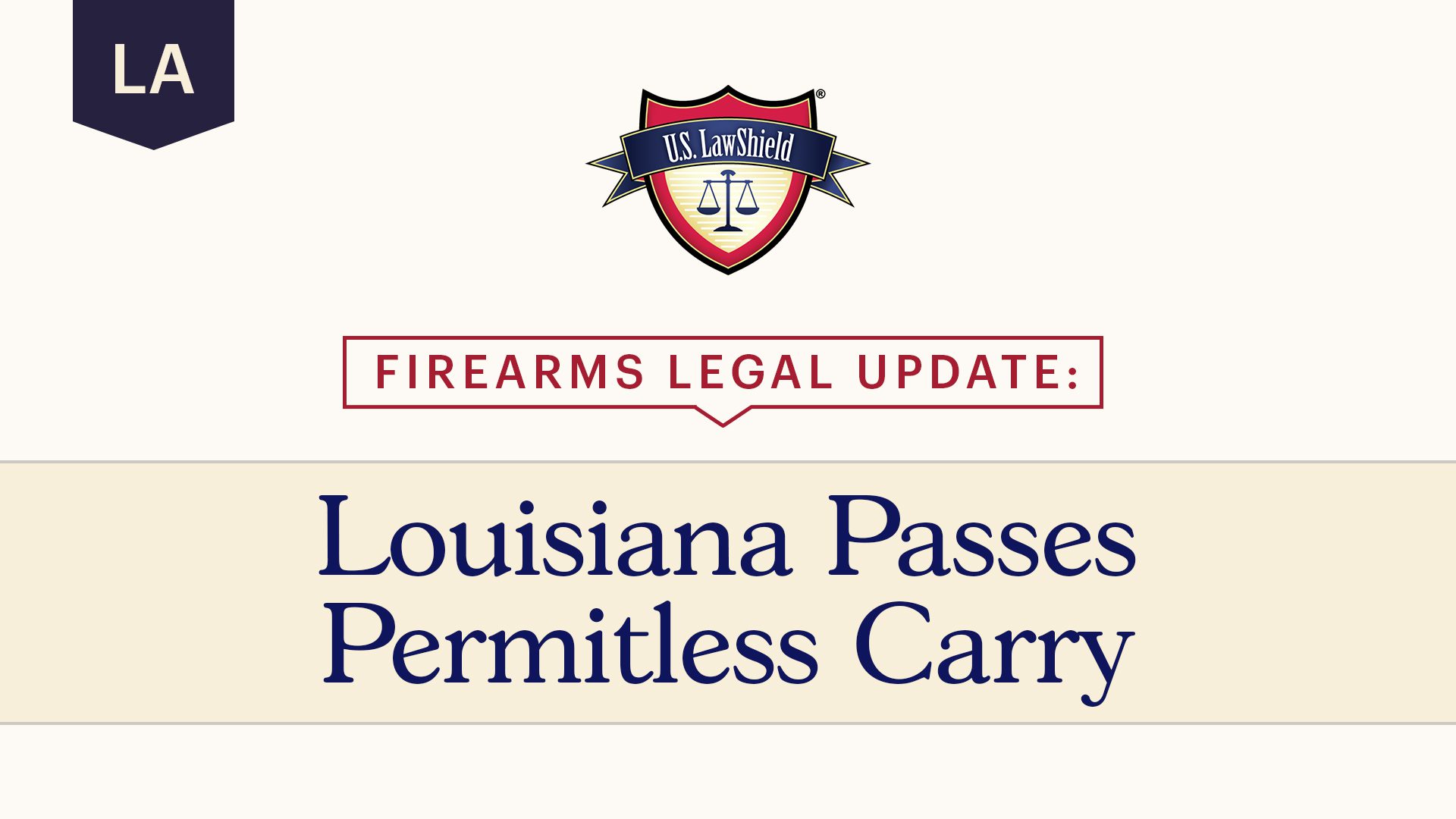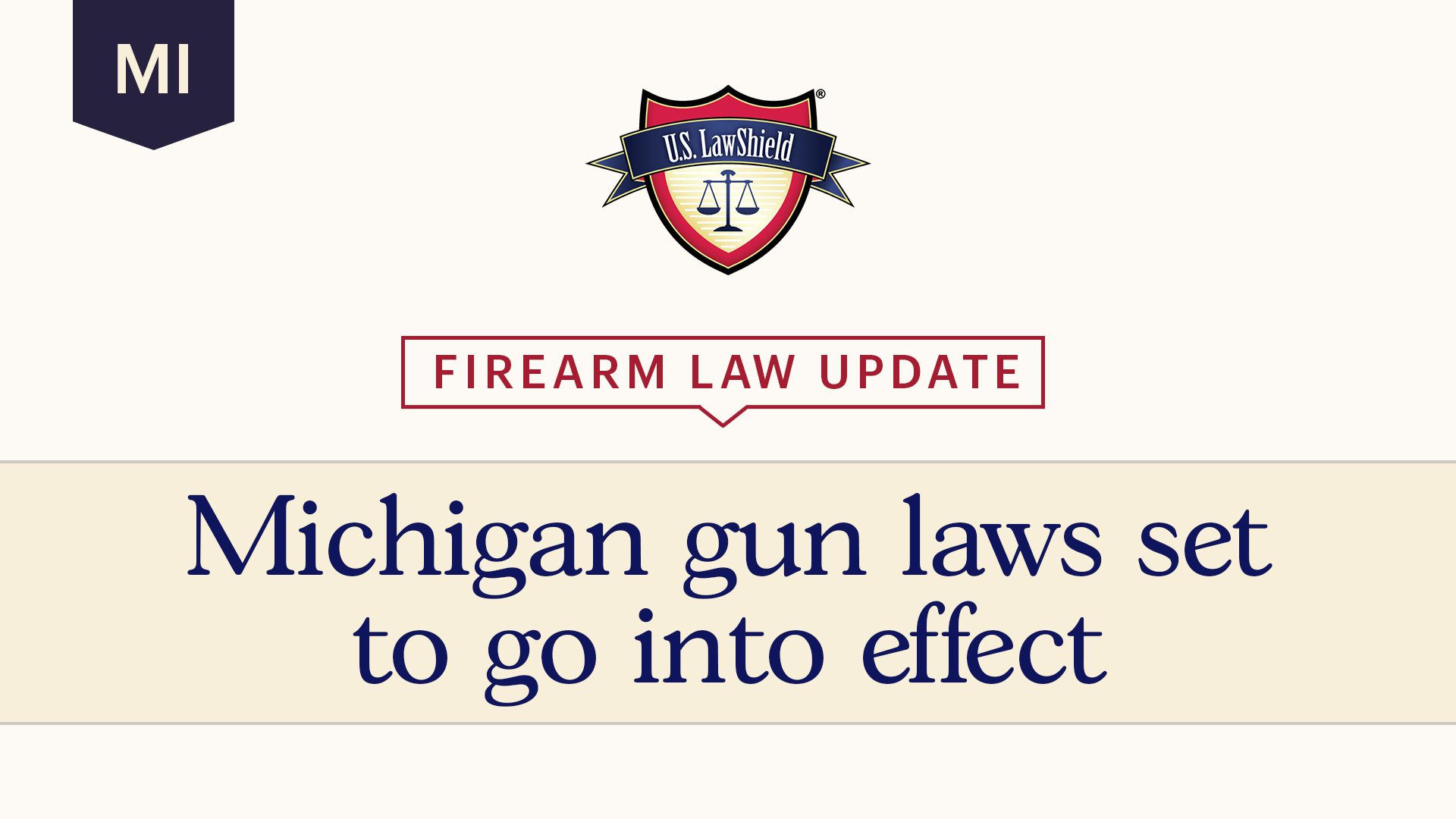
When walking into a criminal proceeding, most people view judges as the dignified presence sitting in judgment of others. After all, a judge usually enters the courtroom in a regal robe after everyone is ordered to rise and acknowledge his or her presence. The judge sits behind the bench on an elevated platform above everyone else in the courtroom, and then all others in the room take their seats. It creates the image of an impartial adjudicator; yet, can we truly expect impartiality and a fair trial?
The criminal justice system has many touchpoints, including law enforcement, prosecutors, juries, and judges. In this second installment of our series on the criminal justice system, we focus on the role of judges, how they attain and wield power, and how they can be trouble for a gun owner and our rights guaranteed under the Second Amendment.
Gun Owners Beware!
As a law-abiding gun owner, if you find yourself before a judge, you’re at their mercy. And while you may have been acting within your rights, the law isn’t necessarily the only catalyst for a judge’s ruling. Some judges follow personal and professional agendas, often as a result of being partisan or being supported by partisans through an election or appointment. It would be ill-advised to always expect the letter of the law to be followed by everyone in a court of law, no matter how much you assume that should be the case.
How Do Judges Get Into Office?
United States Federal Judges are appointed for a term of good behavior (usually a lifetime appointment) by the President with the advice and consent of the U.S. Senate as prescribed by Article II of the U.S. Constitution. State judges, on the other hand, are either appointed or elected in one of the following five ways, depending upon the state:
- The partisan election method means the judge is elected by the people, and candidates are listed on the ballot alongside a label designating political party affiliation.
- The nonpartisan election method also means a judge is elected by the people, but the candidates are listed on the ballot without a label designating party affiliation.
- A legislative appointment method means a judge is selected by a state’s legislature.
- A gubernatorial appointment means a state’s governor appoints the judge. In some states, this appointment will require approval from the state’s legislative body.
- Finally, the assisted appointment method is the most popular selection system and is used in some form in 34 states and the District of Columbia. This process is commonly called the “Missouri Plan,” because Missouri was the first state to adopt this form of merit selection after suffering through years of corrupted judicial elections. This method involves a process in which a state governor appoints state judges based upon merit with the help of a commission or board. These judges then face the electorate after a specific term in office, in the form of a retention election. This is done to ensure that there is some accountability to the voters.
And all of these methods vary not just by state but by the type of judge. For example, a state that allows for partisan elections of county or local trial judges might use a different method for intermediate appellate courts or the state supreme court.
Before the mid-1800s, nearly all states admitted to the Union selected their judges by gubernatorial appointment with legislative confirmation, much like the federal system.
This changed in 1832 when Mississippi became the first state to begin electing judges in order to make them more accountable to the people. Other states followed suit and adopted the practice. As more states joined the Union, the election of judges became more popular.
There are various explanations for the rise in popularity of judicial elections, though most scholars attribute the development to the outgrowth of other movements at the time to make government and its institutions more accountable to the people. Elections were a way to give each individual American a voice in the judicial process.
How Powerful Is a Judge?
Judges have a leading role in deciding the fate of any gun owner who has to go to court to face criminal charges. How? Judges will set the bail amount and bond conditions for a criminal defendant. In the event a criminal defendant is convicted by a jury, in most states the judge will determine the defendant’s sentence.
The trial judge has the responsibility for protecting both the rights of the accused and the interests of the public. Judges have a responsibility to be fair and unbiased; to oversee a trial that treats both the state prosecutors and the defendant the same.
One of the most powerful jobs a judge has during a trial is the admission and exclusion of evidence. The jury may be the judge of the facts, but the judge gets to decide what evidence of those facts the jury will hear. Further, before the jury begins its task of deliberation, the judge will instruct them on the law and how to apply it to the facts it finds from the evidence, which will lead them to a verdict.
Criminal trials have a simple purpose: to determine the guilt of the accused and, if found guilty, to sentence the accused; if the defendant is found not guilty, to set them free and clear their name. The obligation of the trial judge is to make sure the proceedings are conducted according to the rules of evidence and the code of criminal procedure, and to prevent any violation of the defendant’s Constitutional protections.
Types of Trials
Many criminal trials have a jury to find and assess the facts that are presented and make a finding of guilty or not guilty. The role of the judge is to make sure relevant evidence is clearly and fairly presented so the jury can do its job.
In non-jury trials, the judge becomes both the finder of the facts and the arbiter of the law. Effectively, the judge becomes a jury of one determining guilt or innocence in accordance with the law, the evidence, and the legal standards to be applied during the case.
Influence Over a Judge
Judges regularly render decisions that touch almost every aspect of our lives: education, health care, business regulations, and gun ownership, to name a few.
As such, it’s vital to know what factors and groups could potentially influence their decisions.
For example, appointments by governors may give them undue influence and access. Governors can appoint anyone they wish and may appoint their “buddies” to the bench, which could cut off access for more qualified candidates.
Elected judges, whether in a partisan or nonpartisan election, are open to influence from special interest groups that have the ability to raise money and help place them in office.
Like other elected officials, the process of electing judges involves campaigning, and campaigns cost money. This allows judicial candidates to seek campaign contributions in a manner that could give special interest groups greater access to judges than the average American would enjoy. Special interest groups can raise millions of dollars to pour into a vast selection of judicial campaigns—contributions that raise questions about the ability of judges to give unbiased rulings in cases that would involve those groups going forward.
Say, for example, an anti-gun lobbying group raises money for judicial races in Texas as key issues such as self-defense and the right to purchase and possess firearms are being contested in the courts. Is a judge who takes the funding going to be completely independent if a highly publicized case involving a person defending their business with an AR-15 comes into his or her court at a later date?
Obviously, there is a danger there. Various public interest advocacy groups have argued that there are connections that show such contributions influence judges when they rule in business-related cases.
Political Influence on Judges
Elected judges, in both partisan and nonpartisan elections, can feel which way the political winds are blowing. Unfortunately, gun rights and self-defense laws are political issues. Partisan judges will be pressured to adhere their views on gun rights to their political party platform to maintain their place on the ballot. Nonpartisan judges may feel influenced to make decisions that follow election trends so that they can keep their status as a qualified and meritorious judge worthy of retention. Since state court judges are selected from individual districts or counties, the impact of this influence can vary widely in different parts of the same state. For example, a judge in a rural county may have more compassion for a gun owner who is claiming self-defense than a judge from an urban area.
Will You Be Treated Fairly?
As a law-abiding gun owner, you should expect and demand fair treatment in the court system. If something goes wrong and you’re charged with a crime, you should do some research and consult with your attorney to find out which court you will be tried in and how the judge gained his or her position. Those facts will give you some indication of how you are likely to be treated.
As with any elected official, when judges are up for election, the burden is on you as an informed voter to check their platforms, their promises, and their records to see if they’re fit for the bench.
It is important to remember that in all situations where you feel your liberty is in danger because you protected yourself, your family, or your property, to get a lawyer who is knowledgeable and experienced in laws and procedures surrounding crimes involving weapons and self-defense.
Be sure to look out for Part 3 of this story in the next newsletter. For more information about how a judge can impact a law-abiding gun owner’s freedoms, contact U.S. LawShield and ask to speak to your Independent Program Attorney.
The preceding should not be construed as legal advice nor the creation of an attorney-client relationship. This is not an endorsement or solicitation for any service. Your situation may be different, so please contact your attorney regarding your specific circumstances. Because the laws, judges, juries, and prosecutors vary from location to location, similar or even identical facts and circumstances to those described in this presentation may result in significantly different legal outcomes. This presentation is by no means a guarantee or promise of any particular legal outcome, positive, negative, or otherwise.





At the present time, I wouldn’t put my trust in the judicial system to carry out any degree of justice. I’m shocked at the breadth and depth of corruption we’re seeing now. Just be extra cautious out there.
It seems like we are waking up to the fact that the whole legal system has been infiltrated by people with an agenda for years, and now they are showing their true colors.
In many places a judge is a unemployed lawyer with a politician for a close friend. The way things are going we should put a “R” or a “D” after their name the way we do for legislators and elected officials.
Unfortunately I have seen judges stretch their rulings by going beyond the confines of the law and making up their own rules.
I’m living proof. I am in the process of dealing with one that is quite literally ignoring the law to rule against me. The law is VERY clear, and to come up with the ruling he has defies belief. My attorney told me “you’re getting home towned”. No doubt about it. Incredible how ignorant this “judge” is, and how easily he just ignores the law he’s supposed to uphold. I have zero faith in our “justice” system for the most part. It’s quite often not about what’s legal or not, but about who puts on the best show. And then you have to wonder if the judge will actually follow the law.
Thanks for the update, keep it coming.
When attending criminal law classes many, many years ago, I was told that it is always better to have a jury trail of your own peers, rather than a judge. Seems this holds even more true today.
I get what you are saying Jerry and your trust in people of a jury, granted there’s not a lot of choices here but I don’t trust either one just on the fact of the division in the country. From my own point of view it’s in the choice of the attorney and the ability of the law firm to keep it out of the court.
I’ve been a lawyer for 33 years and if you ever are so unfortunate as to become subject to the jurisdiction of a judge, charged with the crime of defending yourself; be afraid, be very afraid.
I live in NJ. It is a liberal victim friendly State. I could have every lawyer that works for US Law Shield on my side. I will still be terrified in court. You don’t get a fair trial here at all. I have 100% faith in U.S. Law shield but it is crooked as the tower of Pisa here. A man or Woman could break in your home and terrorize your family. If you shoot them, they are big on the preservation of their life before yours.
You really need to consider moving to either FL, TX, or if the heat bugs you, Idaho or Montana. Get the heII out of these commie states and become conservative multipliers in the last free places on the entire planet.